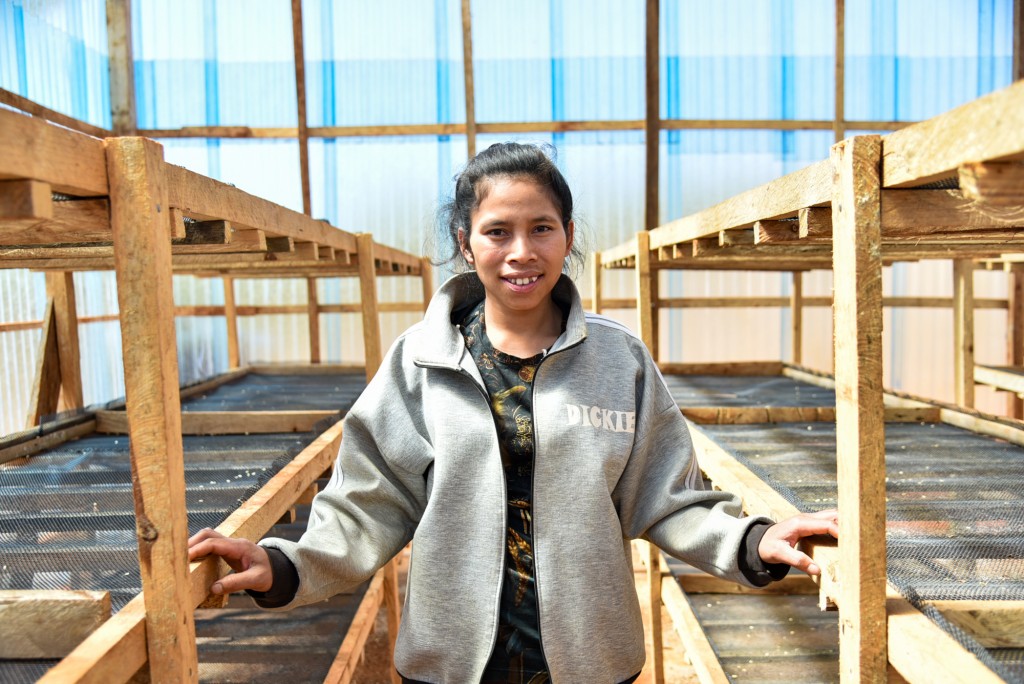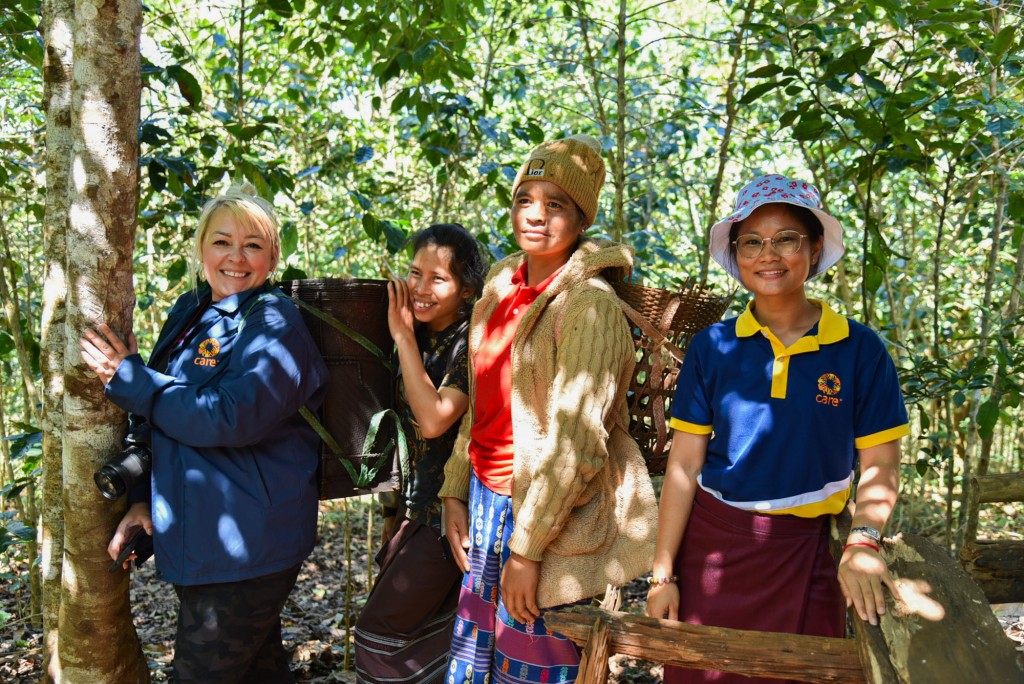In the lush landscapes of southern Laos, the SuPER WE Coffee Project is opening the path toward a more equitable and sustainable future for women coffee farmers. With Laos positioned as the third largest coffee producer in Southeast Asia, coffee cultivation stands as a vital economic pillar for the nation, supporting the livelihoods of 40,000 families. Despite this, women, who are integral to coffee production, find themselves at a disadvantage, largely confined to the initial stages of the coffee value chain—production and processing. This disparity is especially pronounced among women from ethnic communities, who face significant barriers to climbing higher in the value chain, such as engaging with traders and marketing their products.
The European Union funded SWITCH-Asia SuPER WE Coffee project’s objective is to elevate the economic profitability, efficiency, and sustainability of coffee production by smallholder farmers, thereby harnessing coffee’s potential for poverty reduction and bolstering climate change resilience among rural populations. To achieve this, the initiative focuses on several key areas: developing and adopting less polluting, more resource-efficient, and circular products; enabling Micro, Small and Medium Enterprises (MSMEs) to integrate into global greener value and supply chains; assisting MSMEs in minimizing the environmental impact of their production; and enhancing resource efficiency through the adoption of circular economy practices.
This ambitious project aligns with the broader vision of empowering women in Laos, a country that, despite ranking 5th in the 2023 Global Gender Gap Report for equality in economic participation and opportunity, still grapples with significant hurdles to achieving gender equality. These obstacles include entrenched gender norms, limited educational opportunities and political empowerment, which collectively continue to pose barriers to women’s full and equal participation in public life.
By fostering an environment that supports women in meaningful decision-making and control over their futures, the SuPER WE Coffee project not only aims to address immediate economic disparities but also to instigate structural change. This endeavour seeks to dismantle the barriers that have historically held women back, enabling them to thrive as equal participants in the coffee sector and beyond.

Ms. Gethsamone is a 27 year old mother with two children in Dakrai Village, Dak Cheung District, Sekong Province. Her main occupation is that of coffee farmer, but she also farms other produce to supplement her income. In her local coffee group, she has the role of accountant.
For the past 4 years, Gethsamone was not cultivating coffee, focusing on farming vegetables and rice instead. During her work in the field, she often encountered natural disasters such as floods, droughts, and insects destroying rice plants in large numbers. During the harvest season, only a small amount of produce was brought in, which was just enough to feed the family. Gethsamone used to say to her husband, “Why don’t we try to grow more coffee like other families? We see that it means a lot more money because of the higher yield.” Because of these types of conversations, Gethsamone and her husband started growing coffee.
Unfortunately, at the beginning of 2022, Gethsamone’s husband passed away. On top of her grief, his passing made life and farming even more difficult. She was left to run the coffee plantation and take care of her parents and children on her own.
“I’m always very tired because I am the one who has to do everything. My children are still young, and my father and mother are very old,” she says. “When I go to collect coffee, I have to leave the children to be taken care of by my parents. After work, I have to come back and cook. But on top of this, the income from selling coffee wasn’t very much at this time because I didn’t have enough labor to collect coffee to sell.”

When Gethsamone heard that the SuPER WE Coffee Project would be in her village to support coffee cultivation and transformation, she immediately applied to join the village coffee producer group. She believed it would help her gain knowledge of the various issues surrounding coffee cultivation. She also hoped joining would help her network, have some support, and increase her income from selling coffee.
The project provided equipment for coffee planting, coffee seedlings, and organized training on coffee planting techniques and coffee transformation for her and coffee group members. This new-found knowledge made the villagers more motivated to make coffee.
“Through the project, my life has truly changed. Now I can sell white coffee at a higher price and I see my income increasing. Cultivating coffee is difficult and tiring, but if I don’t do it, I won’t have any money for my family. Although I am still the only one who collects coffee, I am very strong and proud that I can still take care of my parents and my children financially.”
The SuPER WE Project is thrilled to help women like Gethsamone have a better life. Like all of our participants, Gethsamone is strong woman. She does not give up in the face of obstacles and is always there for her family.
